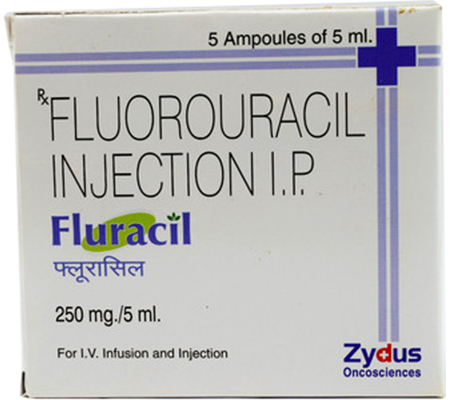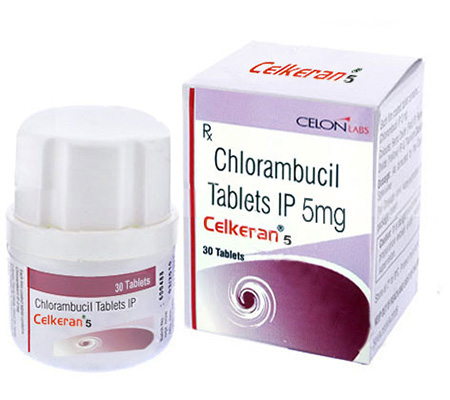Fluracil 250 mg (5 ampoules)
€ 23,00
Free shipping on orders over $300!
- Satisfaction Guaranteed
- No Hassle Refunds
- Secure Payments
Description
Fluracil is a cancer medication that interferes with the growth and spread of cancer cells in the body. Fluracil is used to treat cancer of the colon, rectum, breast, stomach, or pancreas.
You should not use Fluracil if you have bone marrow depression, a serious infection, or if you are malnourished or are not receiving proper nutrition. You should not receive Fluracil if you are allergic to Fluorouracil, or if you have: bone marrow depression; a serious infection; or if you are malnourished or are not receiving proper nutrition.
To make sure Fluracil is safe for you, tell your doctor if you have: cancer that has spread to your bone marrow; liver disease; kidney disease; or if you have ever had radiation treatment of your pelvic area.
Tell your doctor about all other cancer medications you have received in the past. Do not use Fluracil if you are pregnant. It could harm the unborn baby. Use effective birth control, and tell your doctor if you become pregnant during treatment. It is not known whether Fluracil passes into breast milk or if it could harm a nursing baby. You should not breast-feed while using this medicine.
Fluracil is injected into a vein through an IV. A healthcare provider will give you this injection. Your first dose of Fluracil will be given in a hospital setting where you can be closely watched in case the medication causes serious side effects.
Fluracil is usually given daily for 3 or 4 days in a row, and then every other day for another 3 or 4 days. This treatment cycle may be repeated once a month. You may also receive a weekly dose. Follow your doctor's instructions. How often you need Fluracil will depend on many factors, including side effects and how your body responds to the medication. Try not to miss any appointments for your this medicines.
Fluracil can lower blood cells that help your body fight infections and help your blood to clot. Your blood will need to be tested often. Your cancer treatments may be delayed based on the results of these tests. Tell your caregivers if you feel any burning, pain, or swelling around the IV needle when the medicine is injected.
Contact your doctor if you miss an appointment for your Fluracil. Since this medication is given by a healthcare professional in a medical setting, an overdose is unlikely to occur.
Avoid being near people who have colds, the flu, or other contagious illnesses. Contact your doctor at once if you develop signs of infection.
Do not receive a "live" vaccine while using Fluracil, and avoid coming into contact with anyone who has recently received a live vaccine. There is a chance that the virus could be passed on to you. Live vaccines include measles, mumps, rubella (MMR), rotavirus, typhoid, yellow fever, varicella (chickenpox), zoster (shingles), and nasal flu (influenza) vaccine.
Fluracil can pass into body fluids (urine, feces, vomit). For at least 48 hours after you receive a dose, avoid allowing your body fluids to come into contact with your hands or other surfaces. Caregivers should wear rubber gloves while cleaning up a patient's body fluids, handling contaminated trash or laundry or changing diapers. Wash hands before and after removing gloves. Wash soiled clothing and linens separately from other laundry.
Get emergency medical help if you have signs of an allergic reaction: hives; difficult breathing; swelling of your face, lips, tongue, or throat.
Call your doctor at once if you have: signs of infection such as fever, chills, sore throat, flu symptoms; white patches or sores inside your mouth or throat, or on your lips; pale skin, easy bruising or bleeding (nosebleeds, bleeding gums, or any bleeding that will not stop); weakness or fainting; bloody or tarry stools, coughing up blood or vomit that looks like coffee grounds; coughing up blood or vomit that looks like coffee grounds; watery diarrhea, ongoing or severe vomiting; pain, redness, numbness, and peeling skin on your hands or feet; numbness or tingling anywhere in your body, loss of muscle control; or sudden numbness or weakness (especially on one side of the body), sudden severe headache, slurred speech, problems with vision or balance.
Common side effects may include: temporary hair loss; mild to moderate nausea and vomiting, loss of appetite; mild, itchy skin rash; eye dryness, watering, or increased sensitivity to light; or temporary loss of your fingernails or toenails.
This is not a complete list of side effects and others may occur. Call your doctor for medical advice about side effects.





